Beans are a very common food as they’re cheap, easy to make, and healthy. There are dozens of varieties of beans, all with different colors, flavors, and nutritional profiles.
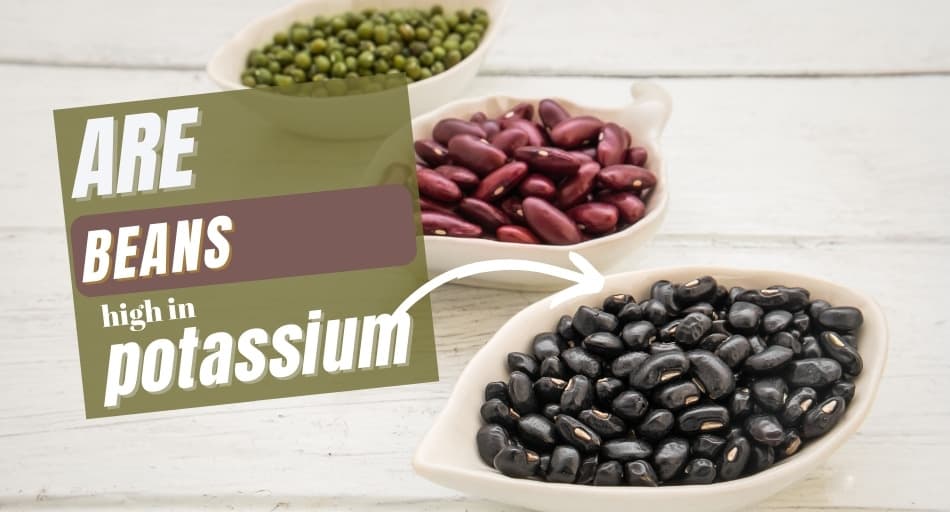
All types of beans are rich in many nutrients, vitamins, and minerals, including potassium.
This might make you wonder: If I follow a low-potassium diet, can I add beans to my diet? Are beans high in potassium?
Table of Contents
- Are beans high in potassium?
- How much potassium is in beans?
- Are beans good for you?
- Can you take in too much potassium from beans?
- Are baked beans high in potassium?
- Are snap beans high in potassium?
- Are black beans high in potassium?
- Are kidney beans high in potassium?
- Are chickpeas high in potassium?
- Conclusion
Are beans high in potassium?
Beans are a very high-potassium food, providing you with way more than 200 mg of this mineral in a single serving. That’s why people who follow strict low-potassium diets should be careful about consuming too many beans.
For others, they might be a great source of potassium and other nutrients, as long as they’re part of a healthy, balanced diet.
Can You Check Your Potassium Level at Home?
How much potassium is in beans?
Standard white beans contain 502 mg of potassium in a half-cup serving. This is quite a lot and corresponds to around 15% of your daily recommended need for this mineral.
Because of that, some experts don’t recommend consuming beans on a low-potassium diet. Instead, try replacing them with other sources of protein that are lower in potassium.
On the other hand, adding beans to your diet can help you load up on this mineral relatively quickly if you suffer from a potassium deficiency.
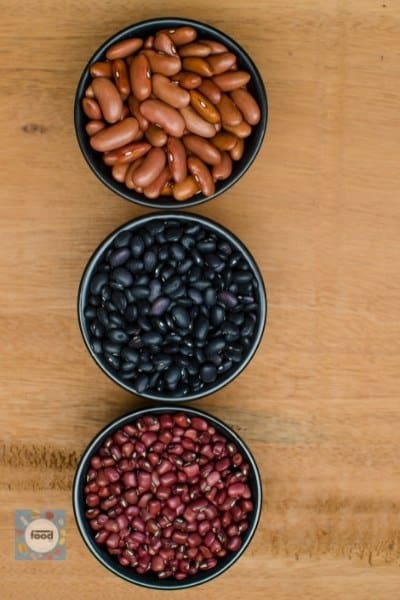
Beans are also rich in other micronutrients, including folate, calcium, manganese, copper, and iron, which all help you replenish your electrolyte levels and improve your health.
Are beans good for you?
Most of the calories in beans come from carbohydrates, but they also pack a good dose of protein.
What’s more, a half-cup serving of white beans provides you with 5.6 of fiber, which is around 23% of your daily recommended need for this type of carb.
Because of that, eating beans can help you lose weight. Both protein and fiber are essential for weight loss, and beans contain both of these.
In addition, regular consumption of beans has been linked to lower body weight, improved digestion, and reduced belly fat.
Eating beans may also promote heart health due to the plant compounds and nutrients found in them.
Many studies found that a diet containing beans and other legumes lowers your levels of ‘bad’ cholesterol.
This reduces your risk of heart disease, including high blood pressure, coronary disease, and heart attacks.
Additionally, beans contain a lot of plant compounds that help fight against inflammation, which is a lead cause for various chronic conditions.
A diet high in beans may also help prevent type 2 diabetes and fight its symptoms if you suffer from it.
This is because beans are high in fiber, which is important for blood sugar levels management.
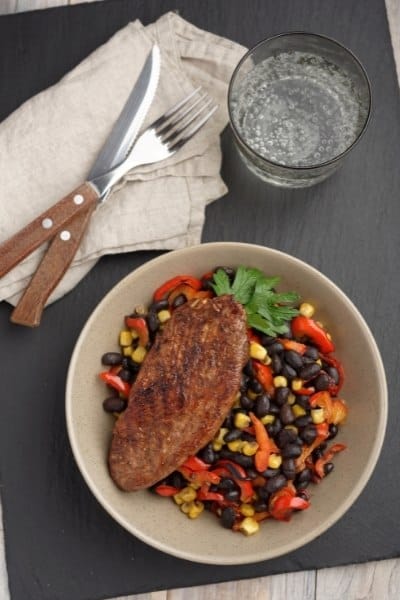
Dietary fiber not only lowers your blood sugar levels but also decreases fasting insulin and triglyceride levels, which are unbalanced in people with diabetes.
So, even though beans are high in carbohydrates, they might actually help you with blood sugar levels and diabetes.
Can you take in too much potassium from beans?
Beans are very high in potassium. So, if you follow a diet that strictly limits your potassium intake, you may want to eliminate them from your diet completely.
There are some bean varieties of beans that are suitable for a low-potassium diet, though, and these include green snap beans.
Other kinds of beans should be avoided or limited to ensure that you’re staying healthy.
If you have any doubts concerning what foods you can eat, you should always consult your doctor.
Are baked beans high in potassium?
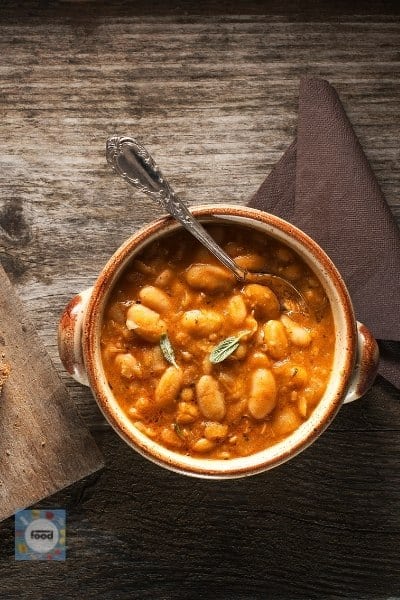
A half-cup serving of canned baked beans contains 374.5 mg of potassium. If you make them at home without adding preservatives, they’re even higher, containing 453 mg of this mineral in the same serving.
Baked beans are a staple in various cuisines, and they’re also incredibly nutritious.
For example, they make for an excellent source of thiamin and selenium, which other bean types aren’t that rich in.
Are snap beans high in potassium?
Green snap beans are slightly lower in potassium, containing 183 mg of this mineral in a one-cup serving.
They’re also much lower in calories than other beans, providing you with under 50 calories in just one cup.
Unlike other beans, green snap beans are a great source of vitamin C, which helps absorb the non-heme iron found in them.
Here, it’s also worth noting that yellow snap beans contain 374 mg of potassium in the same serving, which is around twice as much as their green variety.
They’re still very low in calories as they also contain under 50 calories in one cup.
But you might want to limit them and stick to green snap beans on a low-potassium diet.
Are black beans high in potassium?
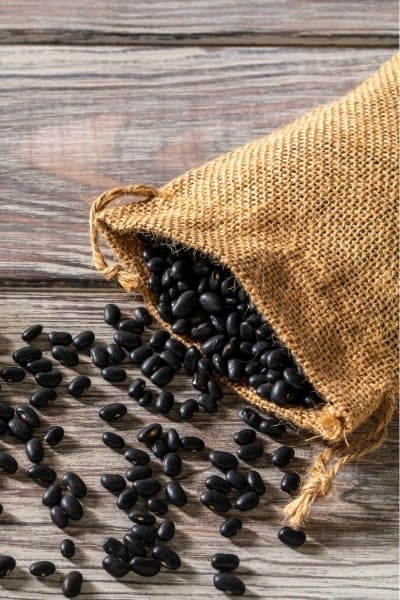
A half-cup serving of cooked black beans provides you with 305 mg of potassium.
While they’re high in potassium, they’re also incredibly nutritious and contain powerful antioxidants and powerful plant compounds.
They’re often used to make burritos and soups as well as a wide variety of sauces.
Are kidney beans high in potassium?
Half a cup of canned kidney beans contains 303.5 mg of potassium. They have a much sweeter taste and a nice red color.
They can be added to various dishes as chilis, sauces, soups, and even salads.
Kidney beans are a great source of protein, making them a great replacement for animal-based protein foods for vegans and vegetarians.
Are chickpeas high in potassium?
A half-cup of cooked chickpeas contains 238.5 mg of potassium. Chickpeas taste starchy and have an earthy and nutty flavor.
They make for a great addition to salads but also larger dishes with meat. Just like other beans, chickpeas are also rich in various minerals and vitamins, making them very nutritionally balanced.
Conclusion
The majority of bean types are very high in potassium. So, they should be avoided by people with kidney disease and potassium sensitivity.
On the other hand, if you suffer from potassium deficiency, adding beans to your diet is a quick and delicious way to up your intake of this crucial mineral.
Don't know which foods are high in potassium? Read our article, 15 Best Food Sources of Potassium. We also have a guide to this important mineral: Potassium 101: All You Need To Know About Potassium.
